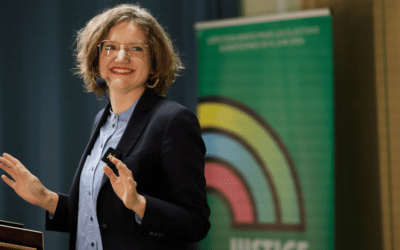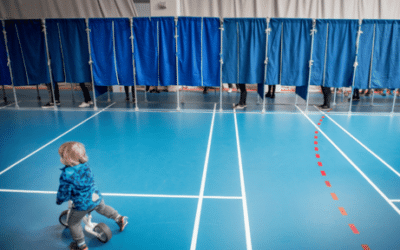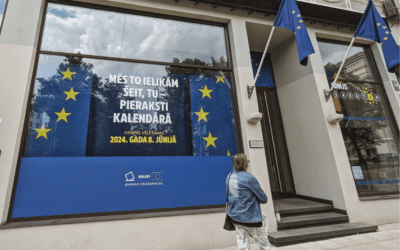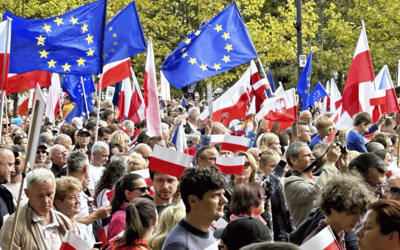We asked our reporters in five countries to talk to young people about the European elections. They know their voice matters.
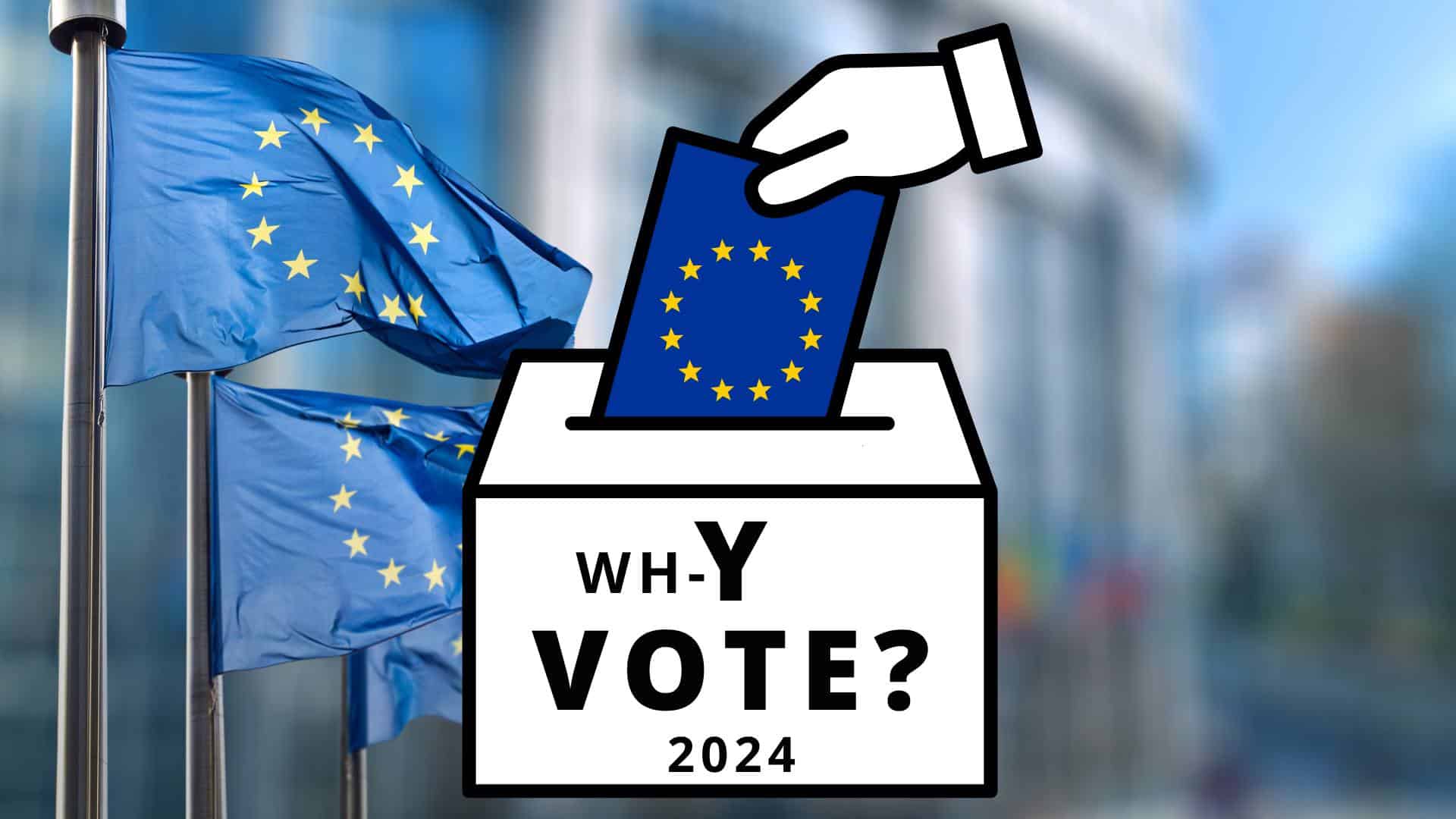
A European ballot box against the backdrop of European Union flags. (Illustration by News Decoder)
The 720-member European Parliament is the only directly-elected transnational assembly in the world. Between 6 and 9 June 2024, voters in all 27 countries of the European Union have been going to polls to select the people in their countries who will represent them in Strasbourg, France, where the Parliament is based.
The last EU election, in 2019, saw the first increase in voter turnout in 40 years. The leap to just over 50% was largely thanks to a so-called ‘youth surge’: namely a 12% increase in turnout among 25 to 39-year olds and a 14% increase among the under 25s.
Senior EU figures heralded the result as a new era of civic engagement and evidence of strengthened support for the EU. Yet, even with the increase, only half of eligible voters cast a ballot and turnout actually decreased in eight countries.
The 2024 election includes, for the first time, 16-year olds in Germany and Belgium, joining their Maltese and Austrian counterparts who were granted the vote in the 2000s.
We tasked five journalists in five countries to talk to young people about the election to see whether or not they planned to vote and why.
Driving the vote were concerns about the war in Ukraine, climate change and the rise of populism and right-wing parties.
In Hungary, where a right-wing government has an overwhelming majority domestically, young voters told News Decoder that representation in the European Parliament is a way to give power to their minority voice. In Denmark youth hope Europe can force environmental policies on their country that their own government has evaded.
Young people in Latvia know that the strength of European integration protects it from interference by Russia, which hovers on its eastern border. In Poland, European integration represents stability in a geopolitical world that seems to be veering into chaos. And in France the European elections are seen as a major test for French President Emmanuel Macron — who advocates for a strong Europe — midway through his second presidential term.
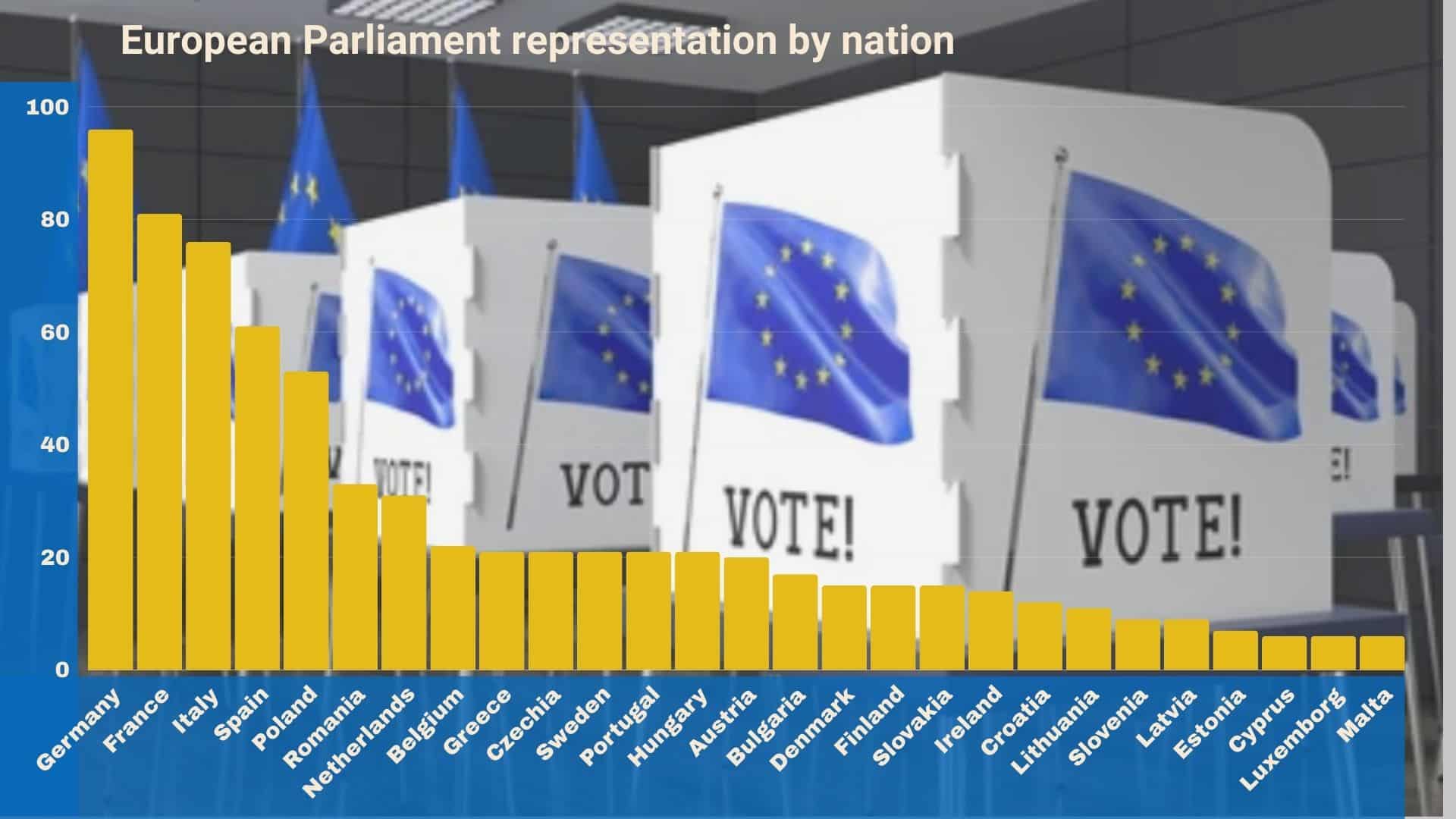
As a whole, the elections will show where voters stand in the tug between nationalism and integration.
Enthusiasm for voting among young people varies among countries. A survey taken by the European Commission and published in April 2024 found that 69% of young people in Poland between the ages of 15 and 30 said they were eligible to vote and planned to do so. In Denmark four out of every five young voters planned to vote.
But correspondent Carlos Rubio didn’t find the same enthusiasm for the European elections among the university students he talked to in France, even though with 81 seats, France will have the second greatest representation in the Parliament, behind only Germany, with its 96 seats.
The power distribution, based on population size, may be more of an issue in Latvia, where in the 2019 European elections only 34% of the people voted. Latvia will send only nine members, giving the nation only a 1.25% representation in the body.
In Poland, correspondent Karolina Krakowiak spoke to one young man who emphasized the importance of European integration at a time of geopolitical instability. “Now, as never before, with what’s happening in the east, European integration is crucial,” he said. “We need to send people who will support it, not undermine it.”
An election watcher in Hungary told correspondent Helen Womack that the election is a test of whether voters are tiring of populism and seeing a need for more liberal democracy. That’s because members of the European Parliament, known as MEPs, sit in ideological groups, not by country.
“This European election is a symbolic occasion, as it’s the first where we have Hungarian voters who were born inside the EU,” said Márton Schlanger, a researcher at the independent Republikon Institute. “The formative political experience of Hungarian youth is that the current ruling party is unbeatable and voting is a futile effort,” he said.
Read all the stories in Wh-Y Vote? package here:
Wh-Y Vote 2024 is funded by the European Union. Views and opinions expressed are however those of the author only and do not necessarily reflect those of the European Union or the Directorate General for Communications Networks, Content and Technology. Neither the European Union nor the granting authority can be held responsible for them.


